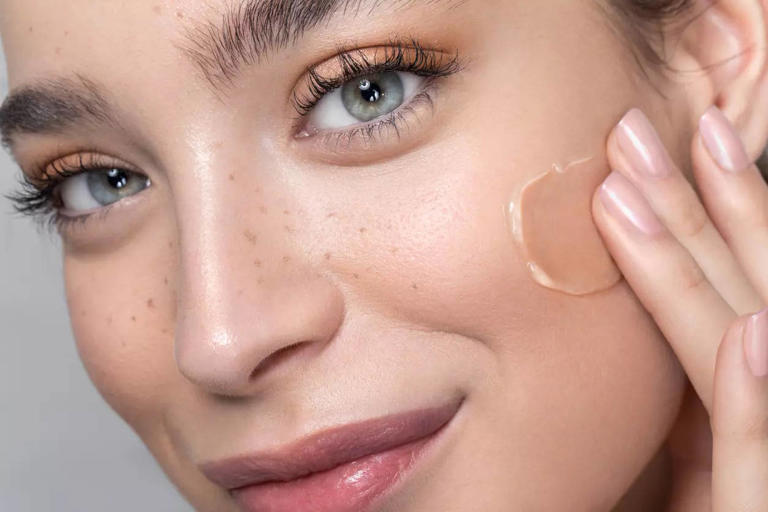Regularly applying foundation to your face can have various effects, both positive and negative, depending on factors such as skin type, the quality of the product used, and individual sensitivities. While foundation is a staple in many makeup routines, it’s essential to be aware of potential side effects and take steps to minimise them for healthy, radiant skin.
Read More: Saunf To Elaichi, 5 Things You Should Eat After Heavy Meals For Digestion
One of the most common side effects of using foundation regularly is clogged pores and acne breakouts. Foundation, especially if not removed properly at the end of the day, can trap dirt, oil, and dead skin cells on the skin’s surface, leading to the formation of blackheads, whiteheads, and pimples. To prevent this, it’s crucial to cleanse the skin thoroughly before and after applying foundation and opt for non-comedogenic formulas that won’t clog pores.
Another potential side effect of foundation is skin irritation and allergic reactions. Some ingredients commonly found in foundations, such as fragrances, preservatives, and certain pigments, can cause sensitivity or allergic responses in some individuals. Symptoms may include redness, itching, swelling, or a rash. To minimise the risk of irritation, choose foundations labeled as hypoallergenic or formulated for sensitive skin, and perform a patch test before applying the product to your entire face.
Read More: Weight Loss Tips: Can You Lose Fat And Gain Muscles At The Same Time? Expert Speaks
Over time, frequent use of foundation can also lead to skin dehydration and dullness. Many foundations contain ingredients like alcohol or matte-finish powders that can absorb excess oil from the skin, resulting in dryness and a lack of radiance. To combat this, look for hydrating foundations enriched with moisturizing ingredients like hyaluronic acid or glycerin, and be sure to moisturize your skin thoroughly before applying foundation to maintain its natural moisture balance.

In addition to these potential side effects, long-term use of foundation may contribute to premature aging of the skin. Some foundations contain ingredients like chemical sunscreens or synthetic fragrances that can cause oxidative stress and damage to the skin cells, leading to the formation of wrinkles, fine lines, and age spots. To protect your skin from premature aging, choose foundations with broad-spectrum SPF protection and antioxidants like vitamin C or green tea extract to shield against environmental aggressors and free radicals.
Read More: Coconut Water For Weight Loss: 5 Reasons Why Nariyal Pani Should Be Your Go-To-Drink In Summer
Finally, it’s essential to consider the psychological impact of relying on foundation to achieve a flawless complexion. While makeup can enhance confidence and self-esteem, becoming dependent on foundation to conceal perceived flaws or imperfections can lead to negative body image and self-consciousness. Embracing your natural beauty and taking care of your skin from the inside out through a healthy diet, adequate hydration, and a consistent skincare routine can help reduce the need for heavy makeup and promote a more positive relationship with your appearance.
While foundation can help create a smooth, even complexion, its regular use may also pose certain risks to the health and appearance of your skin. By choosing high-quality, skin-friendly products, practicing proper skincare hygiene, and being mindful of your skin’s needs, you can enjoy the benefits of foundation without experiencing adverse side effects. Remember that true beauty comes from within, and a healthy, radiant complexion is the best foundation for any makeup look.





































